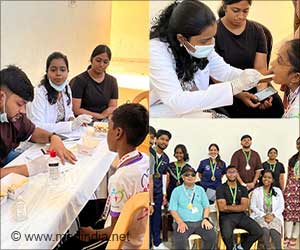
"I didn't get paid until we got back to Nepal, and then only around a third of what I'd been promised," the 36-year-old told AFP in his home village of Jyamdi, around 30 miles (50 kilometres) east of the capital Kathmandu.
"I lost my farm anyway, and if I'd known then what I know now, there's no way I would have sold my kidney."
Parajuli, whose family abandoned him after he lost all his property, looks frail and haggard. Now a day labourer, he said he finds heavy work difficult.
"I occasionally feel the pain on the side," he said, pointing to the six-inch (15 cm) scar on his right side.
Under Nepalese law, kidney transplants are allowed only if the organ is donated by a blood relative or spouse.
Advertisement
Everyone knows someone who has given up a kidney in Jyamdi, one of a cluster of impoverished villages in Nepal that have become a centre for the traders because of the proximity to Kathmandu and the Indian border.
Advertisement
"The organ traffickers trawl the villages looking for poor donors like Madhab," former village chief Krishna Bahadur Tamang told AFP.
"People here are poor and uneducated so it's easy. But in most cases they get only a tiny fraction of the money they were promised."
Some are even lured into India with cover stories, and only told the true purpose of their journey once they are over the border.
That is what happened to Mohan Sapkota, who was initially told he would be paid to accompany a Nepalese kidney patient travelling to India for treatment.
He became suspicious when the trafficker told him he would have to undergo a blood test and a health check-up before travelling, but it was only after he arrived in the southern Indian city of Chennai that the true reason emerged.
"I had no money and no property and the trafficker promised to pay for my children's education, so I agreed to give up a kidney," Sapkota, 43, told AFP. "But in the end, all I got was 60,000 rupees."
Sociologist Ganesh Gurung has conducted research into organ trafficking in the district of Kavre, where the villages are located.
He says that once they are in India, the victims are even more vulnerable to the traffickers' demands.
"The donor is in a very weak position in India, where he often cannot understand the language and has little bargaining power," he said.
"And then when they get back to the village, many of them spend the money on alcohol."
A survey conducted by a local non-government organisation in 2009 put the number of people in Kavre who have sold a kidney at 300. No official statistics are available, but many people believe the true figure is much higher.
Many organs rackets in India cater for foreigners dubbed "transplant tourists", but most of the kidneys from Nepal are actually destined for Nepalese patients.
Wealthy Nepalese people suffering kidney diseases travel to India for the transplant operation, said Rishi Kumar Kafle, a Kathmandu doctor specialising in nephrology who is executive director of the National Kidney Center.
"In Nepal only the patient's blood relatives and spouse are eligible for kidney donation. Therefore, those looking for a donor outside this travel to India for transplant," he told AFP.
He said the paucity of healthcare in Nepal means kidney disease often goes undetected until it is too late, leaving the victim with a choice between expensive dialysis treatment or an illegal transplant.
Nepal's weak law enforcement and open border with India make it easy for the traffickers to ply their lucrative trade, and reports suggest a kidney can fetch up to 20,000 dollars on the black market.
Police say they have struggled to make any arrests because the traffickers live outside the area, but local farmer Raman Pariyar accused authorities of ignoring the illegal trade.
"Our village has developed a reputation as a place where you can buy kidney," he said.
"Local people see that you can give up a kidney and still try to live a healthy life. So, a prospective donor leaves the village first to Kathmandu and then to India and comes back with a scar in his side."
Source-AFP








